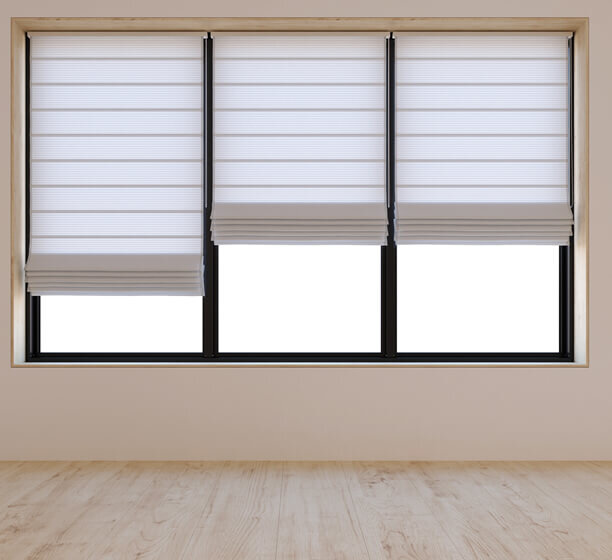
FREQUENTLY ASKED QUESTIONS
Table of Contents
Don’t see your question listed?
Reach out to us and we’d be happy to provide more information!
General Information
-
No, we do not offer automotive window tinting services. We are flat glass specialists— commercial, residential, private sector, etc. Sometimes we can offer to tint RV windows if the glass is flat (typically on the sides of the RV). If you are needing automotive tinting, we highly recommend Car Crazy Window Tinting in West Olympia.
-
Window film is a thin laminate applied to glass surfaces to enhance performance, providing benefits like UV protection, heat reduction, privacy, and security.
-
Window film reduces heat, glare, and UV rays, improves privacy, enhances security, and can help lower energy costs.
-
Unlike blinds or curtains, window film provides continuous heat rejection and privacy without blocking natural light.
-
It depends on the size of the job. If it is a big job (many large windows), we might be able to travel further distances. If it is a smaller job (a few windows, moderate size), then our radius may be limited. We commonly do business in Thurston County, King County, Pierce County, and Grays Harbor. Email or call us if you aren’t sure if you’re in our service radius!
-
The quote itself is free, but it also depends on your location. If it is something nearby Olympia, there usually isn’t a trip charge. However, as it gets further out, sometimes a trip charge is necessary.
-
It depends on the time of year. Summer is our busy season, and wait times can be anywhere from 3-5 weeks out. During colder parts of the year, however, the lead time can be closer to 1-2 weeks.
-
Being Washington state, there is a lot of rain and colder weather for part of the year. This limits our ability to reliably schedule and install film on exterior windows during certain seasons. Or, during the summer, sometimes it is too hot to safely/effectively install exterior window film. In cases of uncooperative weather, we may need to reschedule your project if it takes place on the exterior of your building. We want our installers to be safe, and for your job to be done to perfection exactly how you want it.
Types and Features of Window Film
-
Dyed films offer privacy and glare reduction, metallic films provide strong heat rejection, and ceramic films offer superior clarity with high heat rejection.
-
Yes, decorative films can be printed with designs or company logos, and films come in various tint levels for different privacy and light control needs.
-
Yes, many films are designed to reduce energy consumption, and some are made with recyclable or sustainable materials.
-
Temporary films use static cling for easy removal, while permanent films use adhesives for long-term application.
Performance and Functionality
-
Yes, most window films block up to 99% of harmful UV rays, preventing fading of furniture, flooring, and artwork.
-
Yes, by reducing heat transfer, window film lowers cooling and heating costs year-round.
-
Yes, high-quality films improve insulation in cold climates and reduce heat in hot climates.
-
While window film does not eliminate condensation, it can reduce temperature fluctuations that contribute to moisture buildup.
-
Some films complement Low-E coatings, but it's important to choose a compatible film to avoid thermal stress on the glass.
Privacy and Visibility
-
Daytime privacy is enhanced with reflective films, but for night privacy, frosted or blackout films work best.
-
High-quality films maintain visibility while reducing glare, while darker films may slightly dim interior spaces.
-
Yes, glare reduction films minimize reflections on TVs and computer screens, improving comfort.
-
Lower tint percentages offer higher visibility, while darker tints provide greater heat and glare reduction.
Safety and Security
-
Yes, security films help hold shattered glass together, reducing injury risks and deterring break-ins.
-
While laminated and tempered glass provide built-in safety, security window films offer an added layer of protection at a lower cost.
-
Yes, impact-resistant security films provide additional protection against extreme weather and natural disasters.
-
Some fire codes may restrict certain films, so it's important to check local regulations before installation.
Comfort and Convenience
-
Yes, window film is non-toxic and safe for homes with pets, children, and plants. It may slightly reduce light for plants but generally does not harm them.
-
While not designed specifically for noise reduction, thicker films can slightly dampen outside sounds.
-
Yes, blocking UV rays helps reduce skin cancer risks and protects eyes from excessive glare.
Installation and Application
-
Some films are safe for double-pane glass, but improper selection may cause thermal stress, leading to cracking.
-
It's possible, but performance and adhesion may be affected, so professional assessment is recommended.
-
Some films are designed for skylights and textured glass, while exterior-rated films can be used on outdoor surfaces.
-
Yes, but check regulations and choose a non-damaging, removable film for preservation.
-
Yes, films are available for homes, offices, storefronts, and high-rise buildings.
Installation Process
-
Installation time varies by project size; windows must be clean and clear of obstructions before application.
-
DIY kits exist, but professional installation ensures durability and proper application.
-
A squeegee, utility knife, spray bottle, and lint-free cloth are commonly used for installation.
Cost / Maintenance / Warranty
-
Costs vary based on film type and size, typically ranging from $5 to $15 per square foot for materials and labor.
-
Many manufacturers offer warranties covering fading, peeling, and bubbling, often lasting 5-15 years.
-
Use a soft cloth and ammonia-free cleaner to avoid damage and prolong film life.

